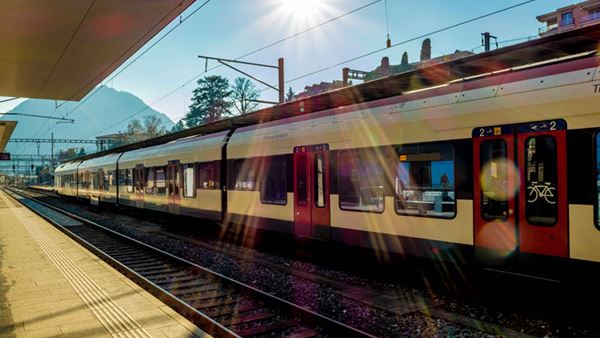So you’re thinking of moving to Singapore! You’re not alone. More than 1.7 million expats call the Southeast Asian Island home, drawn by the cosmopolitan city life, unparalleled safety and excellent travel links to the rest of Asia and beyond.
Whether you’ve already got a job offer, or you’re still in the ‘what-if’ research phase, you’ll have many questions racing through your mind. How easy is it to find accommodation? Are there good schools? What’s the healthcare situation for expats? Is the cost of living really so high? Getting your head around these details will help you understand what living in Singapore is really like. If you’re swinging between excitement and overwhelm, take a deep breath, and read on, this expat guide to life in Singapore is for you.
All about Singapore

The Republic of Singapore is the only country in the world that’s an island, a city and a state. Hovering just above the equator, the climate is hot and humid all year round (average daily temperatures are between 26-33°C). Rain is part of life in Singapore, but showers don’t last long.
Singapore is home to just over six million people, roughly a third of which are expats. It’s a crowded country, but everything works like clockwork. From the pristine streets to excellent public transport and high levels of safety, Singapore is a country like no other. In fact, Singapore consistently ranks as one of the best countries to move to as an expat.
Cost of living
How expensive is Singapore, really?
The answer is complicated. The cost of living in Singapore is undeniably high. In fact, Singapore topped the Economist Intelligence Unit’s Worldwide Cost of Living survey in 2023, making it officially the world’s most expensive city. But this is hardly new news. Singapore has grabbed the top spot for the last nine out of 11 years. Rental prices, international schooling and car ownership are some of the costlier elements of expat life on the island, and with food prices and energy costs spiking, expats are really starting to feel the pinch.
Cost of living data for 2023 indicates that Singapore is 28.7% more expensive than the UK, but only 0.9% more expensive than London. If you’re moving to Singapore from the US or Switzerland, specifically New York or Zurich, Singapore’s overall cost of living (excluding rent) is lower. But, if you’re moving to Singapore from South Africa for example, the difference in cost of living is eye-watering, with Singapore being 55.1% more expensive than Johannesburg.
However, despite the high cost of living, Singapore offers many things money can’t buy: an excellent quality of life, safety and an ease of living which keeps expats flocking to the city from all over the world. While some high costs are unavoidable, keep in mind that budgeting carefully, eating locally at one of the many hawker centres (large food halls offering delicious local and ethnic cuisines), and using the cheap and efficient public transport network will help to keep costs down.
Let's break it down a little more
What can you expect your monthly cost of living to look like in Singapore? Rent will be your largest expense. According to PropertyGuru, rental prices have increased substantially since 2020, but seem to be tailoring off now. Rental prices come down further from the centre but that may mean a longer commute to work or school.
Source: Numbeo. Data correct as of May 2024.
The cost of groceries varies widely and will depend on where you shop. Supermarkets geared towards expats are the most expensive.
Source: Numbeo. Data correct as of May 2024.
These prices may seem high, especially compared to the UK, but Singapore has a wonderful array of cuisines and fresh ingredients to take advantage of.
Transport in Singapore is cheap and relatively easy. The MRT (Mass Rapid Transport) rail system covers most of the island and affordable taxi’s cover the rest. Download the Grab or Ryde apps for ease of booking online or hail them kerbside.

Top tips:
- Make a detailed budget and stick to it.
- Eat local at inexpensive hawker markets.
- Shop local instead of using expat supermarkets.
- Use public transport instead of buying a car.
Finding a place to live
As an expat, accommodation costs in Singapore are probably going to be your largest expense (next to international school fees). Rental prices have risen steadily over the years, exponentially so after COVID-19. As an expat in Singapore, you can choose between renting privately, or applying for an HDB property (flats built by the Housing and Development Board). Which you choose will depend on your budget, but also whether you intend to integrate into local Singaporean communities.
A closer look at housing options
Accommodation in Singapore generally falls into two categories: private rentals which include condos and landed properties (detached houses), and HDB (Housing & Development Board) flats which are government-built developments. These are intended to house the local Singaporean population, but they can also be accessed by expats if you meet the strict requirements.
As an expat in Singapore, you may choose to live in a privately rented condominium, where you can take advantage of facilities such as pools, tennis courts and gyms. Condominiums are generally high-rise buildings with excellent security and building management. You may feel drawn to one of the popular central neighbourhoods such as River Valley, Holland Village, Tanglin or Clementi. These popular areas are also the most expensive. The further from central you go, the kinder rental prices are. The trendy East Coast is popular with expats, Woodlands attracts American expats because of its proximity to American international schools and Yishun in the north of the city is known for its more affordable housing. The good news is, Singapore is a small island and getting around isn’t difficult, so you’re bound to find an area that suits your budget.

Prices
Landed properties are harder to come by than condos, but they’re still possible to find. Keep in mind that while you’ll have more space in a house (perhaps even a small garden), few come with facilities such as swimming pools, or the built-in community spirit of condos. If you really have your heart set on a house, and can afford it, try bidding on one of Singapore’s iconic Black and White houses. These colonial beauties are highly sought after and are allocated via a bidding process. Be aware that all maintenance and upkeep fall to the tenant.
Prices vary according to location, number of bedrooms and standard of modernisation. One or two bedroomed condos can go for around S$3-5000 ($2227-$3713) a month. If you need more space, modern four bedroomed condos can be found in the S$8000+ ($5940) range but expect to pay upwards of S$12000 ($8911) for a more luxurious living space.
If luxury condos are not within your budget, or you’d like to live as the vast majority of Singaporeans live, you can explore renting an HDB apartment. But be aware that without Singaporean citizenship or PR (permanent resident) status, you’ll need to meet stringent eligibility requirements to qualify.

Starting your house search
The best thing to do is jump online and start familiarising yourself with areas, asking prices and what you can get for your budget. Prices vary and you may initially be shocked by how little your money stretches. Keep an open mind, you’re bound to find something!
PropertyGuru and 99.co are two popular property websites in Singapore. Filter your searches by budget, size, location and even proximity to MRT stations.
It’s always a good idea to go through a registered agent when renting property in Singapore. Tenants will be required to pay a deposit of one to two months’ rent, which, all going well, should be returned once you move out. Always read the rental agreement carefully and ask your agent for clarification if you aren’t sure about anything.

Top tips:
- Be sure to meticulously record any damage or imperfections in the property you decide to rent and log these with your agent, so you aren’t held liable for them when you move out.
- Consider employing the services of a dedicated expat housing or relocation agency to help you navigate what is often a chaotic and stressful part of moving to Singapore.
Expat healthcare in Singapore
Healthcare in Singapore is regarded as excellent. Hospitals are world class and medical professionals highly trained. In fact, Singapore’s healthcare is renowned the world over, not just in Asia.
Singaporean citizens and public residents contribute a percentage of their monthly income to government subsidised health insurance. Expats can still access good healthcare but will need to pay for private treatment.
An example of medical costs are as follows:
Source: Wise. Data correct as of May 2024.
Costs for more serious medical conditions or ongoing treatment will be much higher. Investing in comprehensive medical insurance for you and your family is a vital part of moving to Singapore and will give you peace of mind should you ever need minor or major medical attention. Choosing the right international health insurance is important, and it should cover things such as, emergency care, evacuation and repatriation, maternity care and mental health care.
Schooling in Singapore
If you’re relocating with children, finding a school that fits their requirements will be your top priority. Fortunately, Singapore has a reputation for excellent schooling and you’ll have a wide variety of options.
Singaporean or international school?
Your first decision will be choosing between Singaporean and international education systems. There are pros and cons to each. Putting your children in a local school will ensure that they integrate more with Singaporeans, and they’ll more than likely reach fluency in Mandarin. Local schools are also more affordable than international schools.
On the other hand, international schools may be less disruptive in terms of the continuation of your child’s home country curriculum, which will be an important consideration if your children are in high school.
Singaporean schools
As most schools in Singapore teach in English, local schools are open to expat children. Your child will need to sit an entrance exam (mathematics, English and mother tongue language if applicable). It’s a competitive process and be aware that if the school has a waiting list, priority will always be given to Singaporean children and PRs. You may be allocated a school depending on where you live in Singapore, so do your research wisely.
Singaporean school fees have risen over the past few years, especially for international students. School fees are listed per school on the Ministry of Education website, but you can expect to pay S$875 ($649.78) per month for primary and S$1750 ($1299.65) per month for high school.
International schools
Many expats decide to send their children to international schools. This ensures curriculum continuity and has the added benefit that if you move back to your home country after a few years in Singapore, disruption will be kept to a minimum.
There are many international schools to choose from in Singapore, including British, American, French, German, Dutch, Australian and IB World schools. School fees are high and will more than likely be your biggest expense. As time of writing, primary school fees at well-regarded international schools range from S$17000 – S$40000 ($12624.39 - $29704.52), rising to S$21000– S$50000 ($15594.28 - $37130.15) for high school. There are more affordable schools available but be sure to check their access to facilities and outdoor space.
Securing a place at an international school can be stressful. Waiting lists can be years long and entrance to selective schools is very competitive. Your child will sit entrance exams in English and mathematics, also possibly verbal and non-verbal reasoning, and undergo an interview process. It’s not as scary as it sounds and it’s important that the school is the right fit for your child.

Top tips:
- Start admission enquiries early! Places are limited and waiting lists are long. Comb through the schools’ websites to understand what type of curriculum they offer (IGCSE, A levels, IB etc) and read through the admissions process.
- Phone or email the school’s admissions team to express interest for your child’s year group or grade level and ask about waiting lists. This is especially important if finding a school is time sensitive and your move to Singapore is less than 12 months away.
- Visit your shortlisted schools if you can. If you’re unable to tour in person, most international schools offer live virtual tours and admissions staff are always on hand to talk on the phone or via Skype/video call.
- Decide on a school before you look for housing. You’ll want your children to have an easy commute to school and have friends from the same school in the neighbourhood.
- Join the Singapore Expat Schooling Forum on Facebook, it has a wealth of information for parents. Remember, opinions are subjective, and each child is different.
Employment, taxation and work culture in Singapore
Singapore is a global hub for industry, especially tech, healthcare and hospitality and despite recent global recessions, still offers excellent employment opportunities. That being said, if you’re thinking of relocating to Singapore, it’s advisable to have a job lined up before you move.
Visas
Your employer will apply for a visa on you and your family’s behalf. Work visas include an Employment Pass (EP), S Pass, and for high earners and top talent, the One Pass. If you’re moving to Singapore with your partner, they’ll require a Dependant’s Pass (DP) and accompanying children may benefit from a Student’s Pass, which is usually arranged by the school your child will attend. Foreigners may not work on a DP.
Taxation
Tax rates in Singapore are low in comparison to many countries in the world, which is why the island nation is so attractive to foreign workers.
Tax rates are set according to income as follows:
Source: Inland Revenue Authority of Singapore
Work culture
Singapore is a global city, fast paced and exciting. As such, working hours could be longer than you’re used to in your home country. Flexible working and employee wellbeing is slowly gaining ground but shouldn’t be taken for granted. A significant emphasis on productivity is also the norm.
Your working environment in Singapore will be vibrant and multicultural, but there are a few cultural nuances to be aware of. For example, professionalism and respect for authority is paramount. Punctuality is highly valued. If you’re used to rocking up to work in jeans and a collared shirt in your home country, be prepared to dress more formally in Singapore as professional presentation is a point of pride.
Hierarchy is valued in Singapore, and whilst general input is appreciated, it’s those higher up the management structure that will make the decisions.
Respect is very important, and if a disagreement arises, it should be resolved in private and never be aired in public. In Singapore, reputation is everything and understanding the subtle cultural nuances in the workplace will help you to put your best foot forward.

Top tips:
- It’s not always easy for an accompanying partner to find employment once in Singapore. Quotas for foreign workers are strict and preference is given to Singaporean workers. Converting from a Dependant’s Pass to an Employment Pass is not impossible but be aware of the challenges.
- Brush up on your cultural awareness, so that you’re sensitive in your new workplace.
Getting around in Singapore
If you’re used to car culture and tend to drive most places in your home country, prepare to totally reimagine transportation in Singapore.

The MRT covers most of the island (and is still being extended), and taxis are widely used. Children commute to school on public transport from a young age and most expats don’t own a car. This is not surprising given the cost of car ownership in Singapore.
To control the number of cars on the roads, the government issues a quota of Certificates of Entitlement (COE), which is basically permission to own a car. The COE is expensive to buy – currently S$106000 ($78716.77) – and must be renewed every ten years. On top of that is the price of the car, insurance and many other costs and levies. Because all vehicles in Singapore are imported, car prices are inflated. A small sedan-type car costs upwards of S$120000 ($89113.32).
While walking and cycling for recreation is popular in Singapore, remember that the weather is hot all year round and rain is frequent, so commuting by foot or pedal is probably best for very short distances.
Out and about in Singapore
There’s so much to see and do in Singapore, you’ll be spoiled for choice on how to spend your weekends. Whether you’re into café culture, water sports, hiking or shopping, Singapore has it all.
Wander through the authentic neighbourhoods of Katong and Joo Chiat on the East Coast or cycle the bike path along East Coast Park. Shop along busy Orchard Road, or chill at a waterside café at Clarke Quay. Head to Sentosa Island to see the Merlion and for waterparks, theme parks and all things touristy. Be sure to take in the world-famous Botanic Gardens, as well as the 101-hectare nature park, Gardens by the Bay. The Southern Ridges is a ten-kilometre network of pathways, ridges and bridges elevated above the city and is perfect for hiking and bird watching.

Hidden gems
Looking beyond the glitz and glamour, Singapore has a few hidden gems up its sleeve. To the east of the city is Tampines Eco Green with its wetlands and a hidden rainforest. Swap high heels for hiking boots and explore the muddy, overgrown trails of Clementi Forest. Up north, you’ll find the 12-metre-tall Johor Strait Lighthouse. Afterwards, head to Raffles Marina Club and a stroll along the marina.

Getting around
Island hopping is a popular weekend past time in Singapore. Opt for either a public or private ferry and visit the cats on St John’s Island; connect with nature and bike to one of Singapore’s last remaining kampongs (villages) on Pulau Ubin; find white sandy beaches and azure water on Lazarus Island; or visit Chinese temples and Malay shrines on Kusu Island.
One of the best things about Singapore is how well connected it is to the rest of Asia. Jetting off for a weekend away has never been easier, with Thailand, Vietnam, Indonesia and Cambodia all a short flight away. In fact, you don’t even have to get on a plane to leave the country. Hire a car and drive to Malaysia via the North-South Expressway, or the Second Link Expressway. Singapore to Kuala Lumpur is about a four-hour drive.

Eating out
Dining out in Singapore is wonderful, with cuisines from all over the world readily available. Keep in mind that eating out can be expensive, so you may want to balance high end restaurants with food halls or hawker centres, which can be as if not more delicious. Try the Lau Pa Sat and Amoy hawker centres. For fish straight out of the sea and onto your plate, head to Smith Marine Floating Restaurant between Pulau Ubin and Changi Point ferry terminal.
Settling in and adapting to life in Singapore
Once you’ve taken care of the logistical side of relocating, it’s time to work on your personal routine and settling into life in Singapore. The large expat community means there’s a wealth of knowledge to tap in to from everyone who has come before you. From sports clubs, yoga retreats and wakeboarding to trail running, chess club and book club, there’s a plethora of social activities for the whole family.

Finding you feet
Once you’ve taken care of the logistical side of relocating, it’s time to work on your personal routine and settling into life in Singapore. The large expat community means there’s a wealth of knowledge to tap in to from everyone who has come before you. From sports clubs, yoga retreats and wakeboarding to trail running, chess club and book club, there’s a plethora of social activities for the whole family.
Many condos have information boards highlighting social activities, clubs or opportunities for socialising. On social media, you’ll find exercise groups, book clubs and play groups for children. Join one of the many sports clubs in the city or purchase a membership to a private social club.
Singapore is a family-oriented country, and children are welcome anywhere. Parks dotted throughout the city usually have play areas.

Embracing your new life
As a new arrival in Singapore, you may find yourself moving in predominantly expat circles, but Singaporean culture has much to offer. Engaging with the local Singaporeans will only enrich your experience of living abroad.
Singapore is known as the city where East Meets West and is a melting pot of Asian and Eurasian cultures. Food, language, religion, and culture come together in wonderful harmony. Singaporean culture embraces five shared values: Nation before community and society above self; family as the basic unit of society; community support and respect for the individual; consensus not conflict; and racial and religious harmony.
Your children will more than likely learn Mandarin at school, so why not take the plunge and enrol in language classes too? Companies often allocate time and funds for cultural or language training for both you and your accompanying partner, so what better way to start to feel at home in a foreign country than to understand some of its cultural nuances?

Top tips:
Join one of the many Singapore Expat Facebook groups to read about other expats’ experiences as well as advice and insight into what expat life in Singapore is really like on the ground. Expatforum Singapore is another good resource. Just remember that social media is subjective, so what works for one person may not necessarily work for you.
Bringing pets to Singapore
If you have a four-legged friend in your life, moving to Singapore will be a little more complicated, but not impossible.
Singapore has strict rules and regulations about bringing pets in from abroad, and there’s a list of dog and cat breeds that are not allowed at all. You’ll need an import permit and depending on your country of origin, quarantine may be necessary too. Once in the country, you’ll also require a license for your furry family member.

Top tips:
Be aware that HDB (Housing & Development Board) properties permit only one dog per flat, while cats are not allowed at all. Private rental condos allow up to three dogs, but each individual building management will have their own policies on cats.
Use a reputable pet courier company who understand the ins and outs of immigrating with pets and can advise you on every detail.
In a nutshell
Singapore is a vibrant, exciting city for expats. A cultural melting pot where great food, warm weather and a high-level safety add up to an excellent quality of life. Yes, the cost of living is high, so anyone considering a move to Singapore should do their sums meticulously.
Having the right international health insurance is vital so you can focus on settling into your new life in Singapore, safe in the knowledge that if a medical need arises, you won’t be alone and you’ll have the best support.
At AXA - Global healthcare, we have levels of cover to suit a variety of needs. To find out more, visit International Health Insurance: AXA - Global Healthcare.
All information in this article was correct at the time of publishing
Local insights have been provided by Oban International’s LIME (Local In-Market Expert) network: https://obaninternational.com/lime-network/

